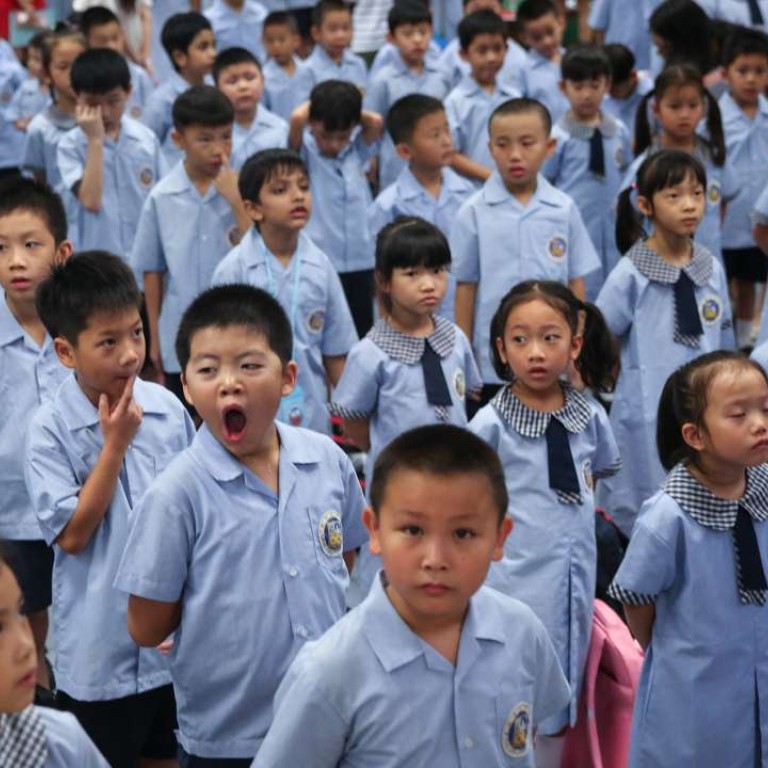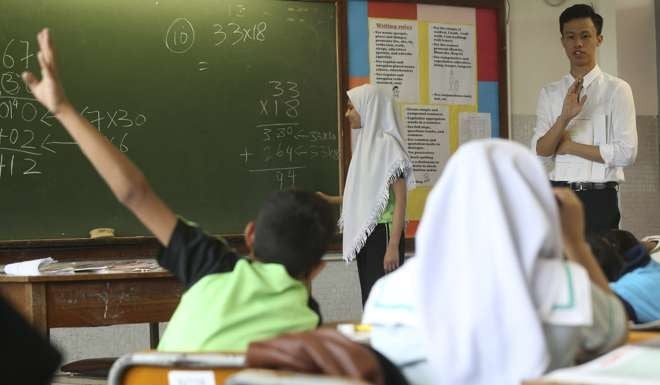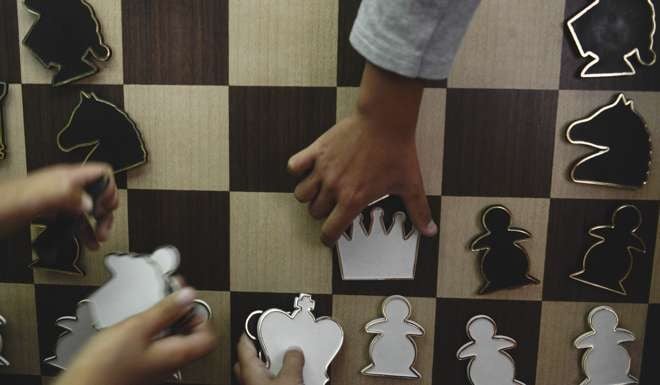
Hong Kong students’ lack of interest in maths and science should worry us
Paul Yip says although they do well in international rankings in maths and science, based on their school results, their relatively low confidence in, and enjoyment of, the subjects reflect poorly on our education system
Hong Kong’s students scored better in maths and science over past 20 years, international study finds
In addition, some 96 per cent of Hong Kong students at both levels achieved at least the lowest benchmark for the subject. We should be proud of our students for achieving such impressive results.
However, worryingly, the survey results suggested that Hong Kong students lagged behind others in feeling passionate about learning maths and confident about the two subjects. Only 25 per cent of Hong Kong Primary 4 students were very confident in science, compared with the international average of 40 per cent.
This is a wake-up call for Hong Kong educators.
Hong Kong slips to new low in international ranking for student performance in science

Hong Kong Primary Three pupils sail through revised maths test, but balk at English composition
For a long time, some people have complained that our academic syllabus is too hard. Some schools even speed up their teaching of maths so the class is one level ahead. This sort of arrangement might benefit the gifted few but it is a very unsatisfactory arrangement for the rest, who struggle to catch up.
Our students are so preoccupied with learning how to game the system that true learning has been all but forgotten
If the usual syllabus was taught at the usual pace, most students would have no problems. So, why make students feel discouraged, through no fault of their own?
This is not the way to improve students’ maths skills. Instead of teaching one level up, teachers should make the learning process more interesting. At present, the process itself is too exam-oriented.
Many parents spend a sizeable portion of their income on extra tutorial classes for their children in the private market. Unfortunately, these classes do not teach students about the subjects at all, but rather grill them on exam techniques so they can ace the tests.
Our students are so preoccupied with learning how to game the system that true learning has been all but forgotten.
This exam-oriented mentality has even spread to universities and undergraduates now sometimes show little interest in whatever isn’t in an exam.
Hong Kong students need inspiration, not more tests, to excel
That is a pity. Learning is supposed to be fun and arouse curiosity. This way, students will invest their time and creativity in exploring the subjects. In time, we will produce great scholars and scientists, rather than just high scorers in exams.
The survey results send a warning to our educators in primary and secondary schools: don’t destroy the passion of our young students by being too exam-oriented in the teaching of maths and science. We need to provide space and nurture their interest.
There is so much more to learning than trying to answer exam questions correctly. Maths and science knowledge, for example, can be enhanced with more experimental learning rather than textbook study.
A Hong Kong mother worries her son’s maths lessons are too much fun
The United States and some other Western societies (including Germany, the UK, Australia and New Zealand) did not do so well in the survey, yet they lead in science and technology and many other aspects. In those places that did do well, including Singapore, mainland China, Taiwan and Hong Kong, parents have been sending their children to study in the West. So, there must be something missing in our own system that we need to improve.

Time to take secondary education in Hong Kong into the digital age
The recent effort by the Education Bureau to promote STEM education (science, technology, engineering and maths) aims to unleash students’ potential in innovation and equip them with the necessary skills to face today’s challenges. Let’s hope that this curriculum renewal can make studying these subjects more interesting. With the support of community stakeholders, we can really provide an opportunity for the younger generations to develop.
We need more young talent in these areas to turn Hong Kong into a smart city
After a holistic review, our educators must take the necessary steps to change their teaching methods, to suit the needs and interests of their students.
The idea is to promote STEM, reduce the focus on exams and enhance in students the skills and qualities essential for life in the 21st century.
The Hong Kong government recently set up the Innovation and Technology Bureau, which aims to promote innovation and technology in the community. We need more young talent in these areas to turn Hong Kong into a smart city, so it may continue to prosper.
If our schoolchildren have lost their interest and confidence in these subjects at such a young age, the future will be very pessimistic.
In the next such survey, in four years’ time, we will certainly want to maintain maths skills and science knowledge, but the passion and interest of students cannot be ignored and undermined – for everyone’s sake.
Paul Yip is a professor in the Department of Social Work and Social Administration at the University of Hong Kong

